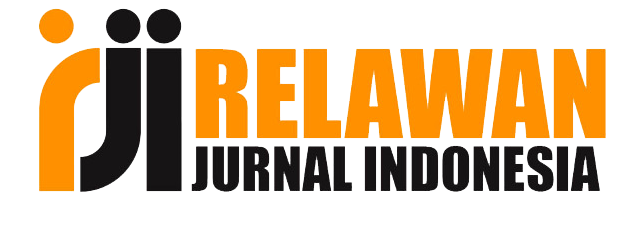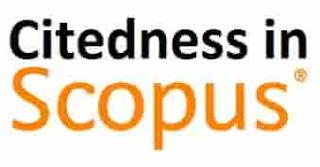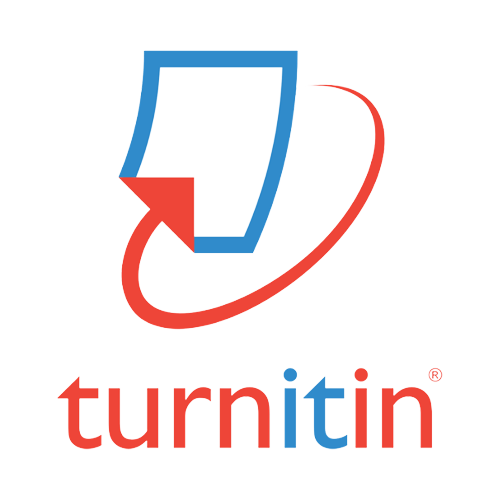Peer review in writing activities: outcomes and perceptions of EFL students
DOI:
https://doi.org/10.33474/j-reall.v1i2.6845Keywords:
effect, peer review, writing abilityAbstract
This study aims at investigating the effect of peer review on students' writing ability and the students' perceptions toward the use of peer review technique in writing class. This is an experimental research by involving 62 EFL students of eighth graders of a Junior High School in Malang, Indonesia. The data were obtained by conducting a writing (pre-test an post-test) and giving questionnaire. The data were analyzed by using quantitative descriptive statistics. The qualitative data expressed descriptively about students perceptions toward using peer review technique in writing acitvity. The findings shows that the students in experimental group who were taught by using peer review technique got better achievement in writing ability than the students in control group who were taught by using self-assessment strategy. The use of peer review technique in writing class makes the class less anxious and more enjoyable. The students are enthusiastic so that the class become more student-centered. The students are able to interact each other in giving comments and suggestions to reduce mistakes in terms of global and local issues to make better subsequent of writing product. In addition, the result of questionnaire shows that the students have positive attitudes toward the use peer review technique in writing class.
References
Ariyanti. 2016. The teaching of EFL writing in Indonesia. Dinamika Ilmu, 16(2), 263-277.
Astrid Annisa, et al. 2017. The effect of writing feedback techniques and students' writing anxiety on students' essay writing ability. International Journal of Foreign Language Teaching & Research, 5(18).
Bijami, M. 2013. Peer feedback in learning English writing: advantages and disadvantages. Journal of Studies in Education, 3(4), 91-97. https://doi.org/10.5296/jse.v3i4.4314
Carmines & Zeller (1979). Reliability and validity assessment. In Reliability and validity assessment (pp. 17-26). The International Professional Publishers Newbury Park London New Delhi.
Dantes. 2013. The investigation of the teaching of writing at the tenth grade of senior high school (SMAN) 1 Aikmel in Lombok. E-Journal Program Pascasarjana Universitas Pendidikan Gajayana, 1.
Fadhilah. 2017. The effectiveness of written "peer review" towards English 3 students' writing skill. Jurnal Vision, 6(1), 87-106.
Ghanbari. 2015. An exploration of the effect of time pressure and peer feedback on the Iranian EFL students' writing performance. Theory and Practice in Language Studies, 5(11), 2251-2261.
Ghanei. 2015. The effect of peer review on cohesion improvement in writing skill among EFL learners. International Journal of Language Learning and Applied Linguistics World, 8(2), 103-112.
Hansen & Liu. 2005. Guiding principles for effective peer response. ELT Journal, 59(1), 31-38. https://doi.org/10.1093/elt/cci004
Itmeizeh, M. J. 2016. Impact of peer correction on reducing English language students' mistakes in their written essays in pauc and learners' attitudes towards this technique. Theory and Practice in Language Studies, 6(11), 2068-2078.
Jahin, H. J. 2012. The effect of peer reviewing on writing apprehension and essay writing ability of prospective EFL teachers. Australian Journal of Teacher Education, 37(11).
Kustati, M. 2005. The effect of the peer-review technique on students' writing ability, 71-81.
Maarof. 2011. Role of teacher, peer and teacher-peer feedback in enhancing ESL students' writing. World Applied Sciences Journal, 15, 29-35.
Megaiab. 2014. The English writing competence of the students of Indonesian senior high school. WEI International Academic Conference Proceedings, (2000), 187-192.
Miftah. 2016. EFL students' performance and expectation towards peer response in writing classroom. Indonesian Journal of English Education, 3(2), 208-223. https://doi.org/10.15408/ijee.v3i2.5513.Permalink/
Moussaoui. 2012. An investigation of the effects of peer evaluation in enhancing Algerian students' writing autonomy and positive affect. International Conference on Education and Educational Psychology, 69, 1775-1784. https://doi.org/10.1016/j.sbspro.2012.12.127
Nguyen. 2016. Peer feedback practice in EFL tertiary writing classes. English Language Teaching, 9(6), 76-91. https://doi.org/10.5539/elt.v9n6p76
Sotoudehnama. 2016. The impact of peer review on EFL learners' writing proficiency: global and local aspects. In Porta Linguarium (pp. 35-47).
Suba. 2014. What are the effects of written peer feedback training on turkish ELT students' writing quality? International Journal of Arts and Commerce, 3(9), 1-15.
Sugiyono. 2007. Metode Penelitian Kuantitatif Kualitatif dan R&D. Bandung: Alfabeta.
Suparma. 2013. The effect of peer assessment and anxiety on writing competency of grade x students of SMA Negeri 5 Denpansar. E-Journal Program Pascasarjana Universitas Pendidikan Ganesha, 1.
Yastibas. 2015. The effect of peer feedback on writing anxiety in Turkish EFL (English as a foreign language) students. An International Conference on Teaching and Learning English as an Additional Language, 199, 530-538. https://doi.org/10.1016/j.sbspro.2015.07.543
Downloads
Published
How to Cite
Issue
Section
License
Copyright (c) 2020 Theresia Adventris Ndohna Ruru, Teguh Sulistyo

This work is licensed under a Creative Commons Attribution 4.0 International License.
Authors who publish this journal agree to the following terms:
- Authors retain copyright and grant the journal right of first publication with the work simultaneously licensed under a Creative Commons Attribution License that allows others to share the work with an acknowledgement of the work's authorship and initial publication in this journal.
- Authors can separately make additional contractual arrangements for non-exclusive distribution published by the journal (e.g., publish it in a book), with an acknowledgement of its initial publication in this journal.
- Authors are allowed and encouraged to send their work via online (e.g., in the institutional repositories or their website) after published by the journal.






















